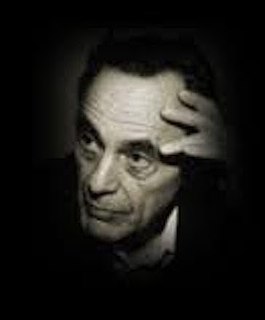A Quote by Thomas Carlyle
Before philosophy can teach by Experience, the Philosophy has to be in readiness, the Experience must be gathered and intelligibly recorded.
Quote Topics
Related Quotes
Philosophy, like science, consists of theories or insights arrived at as a result of systemic reflection or reasoning in regard to the data of experience. It involves, therefore, the analysis of experience and the synthesis of the results of analysis into a comprehensive or unitary conception. Philosophy seeks a totality and harmony of reasoned insight into the nature and meaning of all the principal aspects of reality.
You can't teach anyone. You can't tell anyone. That's the thing you have to sit down and experience in order for it to mean anything. You can't intellectualize it. It's like why movies are cool. It's a combination of pictures and design and acting and music can create an experience that is outside of the experience that you can actually have in reality, which gets to my motion picture philosophy. People are like, 'aren't you trying to make the movies as real as you can?'
Experience has repeatedly confirmed that well-known maxim of Bacon's that 'a little philosophy inclineth a man's mind to atheism, but depth in philosophy bringeth men's minds about to religion.' At the same time, when Bacon penned that sage epigram... he forgot to add that the God to whom depth in philosophy brings back men's minds is far from being the same from whom a little philosophy estranges them.
Poetry is related to philosophy as experience is related to empirical science. Experience makes us acquainted with the phenomenon in the particular and by means of examples, science embraces the whole of phenomena by means of general conceptions. So poetry seeks to make us acquainted with the Platonic Ideas through the particular and by means of examples. Philosophy aims at teaching, as a whole and in general, the inner nature of things which expresses itself in these. One sees even here that poetry bears more the character of youth, philosophy that of old age.
Philosophy - reduced, as we have seen, to philosophical discourse - develops from this point on in a different atmosphere and environment from that of ancient philosophy. In modern university philosophy, philosophy is obviously no longer a way of life, or a form of life - unless it be the form of life of a professor of philosophy.
Certainly Christianity is an experience, but equally clearly the validity of ane experience has to be tested. There are people in lunatic asylums who have the experience of being the Emperor Napoleon or a poached egg. It is unquestionably an experience, and to them a real experience, but for all that it has no kind of universal validity. It is necessary to go far beyond simply saying that something comes from experience. Before any such thing can be evaluated at all, the source and character of the experience must clearly be investigated.







































